Chinese New Year Taboos and Superstitions: 18 Things Not to Do
As you may already know, the Chinese New Year (also known as the Spring Festival) is the biggest and most important traditional festival in China. It marks the beginning of the Lunar New Year. In China, it is traditionally believed that one’s behavior during the Chinese New Year will affect their luck for the following year. So, what are the Chinese New Year taboos to avoid bad luck?
Read on to find out the top 18 taboos during Chinese New Year. Certain Chinese Lunar New Year taboos are only on the first day of the Chinese New Year, while others are applicable throughout the entire Chinese New Year festival, from Chinese New Year’s Eve to the Lantern Festival (the 15th day of the Lunar New Year). Follow these Chinese New Year dos and don’ts, and good fortune will favor you.
1. Don't Break Glass or Ceramics

In some cultures, breaking dishes in front of the homes of neighbors and friends is considered to bring good luck in the coming year. However, when it comes to taboos for Chinese New Year, breaking things like dishes, bowls, plates, glasses, or mirrors during the Lunar New Year has been said to break your connection with fortune.
What should you do if you accidentally break something? Wrap the fragments with red paper or cloth, and say "suì suì píng ān" (岁岁平安 in Chinese characters) to pray for safety and peace. You can throw it on the 5th day of the Spring Festival. The Mandarin word for "year" (岁 suì) is pronounced the same as "broken" (碎 suì). Therefore, Chinese people say “suì suì píng ān” to ward off bad luck.
2. Don't Say Unlucky Words
One of the most common Chinese New Year taboos and superstitions is to avoid saying unfavorable words. During the Chinese New Year period, it’s advisable not to use negative words in daily conversation. This includes words such as death, pain, illness, poverty, loss, ghost, kill, empty, etc. The most obvious reason behind this verbal superstition is that you wouldn’t want to curse yourself, your family, or friends.
3. Don't Cry
Avoid the tears, even if it’s a good one. Crying at the start of the new year is believed to set the tone of sadness in motion for the next 12 months. Instead, you should enjoy the holiday and have fun.
4. Don't Cut Your Hair
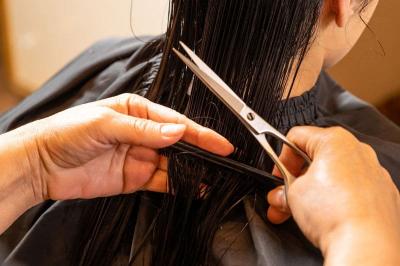
Getting your hair cut seems like a great way to start a brand new year. But the Chinese New Year traditions and superstitions say it’s bad luck to get a haircut during the Chinese New Year season.
The Chinese word for "hair" shares the same word as "wealth." Cutting your hair is considered to be cutting off your fortune, and thus is among the things not to do on Chinese New Year festival. And there is an old saying that cutting hair during the first lunar month will bring death to one's uncle. Absurd as it may sound, Chinese people still follow this tradition.
Normally, Chinese people get their hair cut on the Longtaitou Festival (龙抬头, dragon head raising), which falls on the 2nd day of the second lunar month. The Longtaitou Festival (Dragon Head Raising Festival) is celebrated to mark the beginning of spring and the start of the farming season.
5. Don't Scold Children
According to Chinese superstitions, scolding your kids on New Year’s Day will make them naughty and result in them being scolded for the entire year.
6. Avoid Taking Medicine

Taking medicine or visiting a hospital during the Chinese New Year is considered to run the risk of falling ill in the year to come.
So, try not to take medicine or see a doctor during this period (especially on the first day of the lunar year) unless you have a chronic illness or it's an emergency.
7. No Killing
Blood is thought to be a bad omen, indicating wound or a bloody disaster. Therefore, avoiding killing any animals before the end of the Lantern Festival, including fish, chickens, ducks, and pigs.
8. Don't Give Certain Gifts
It's thoughtful to give gifts and express appreciation when visiting friends or family members. However, try to be culturally aware when giving gifts to Chinese people. Don't give things like clocks, umbrellas or pears as New Year gifts when visiting Chinese people.
In Chinese tradition, giving a clock (especially to the elderly) is a homophone for the act of attending their funeral. Umbrella is a homophone of breaking up. Pear and separation are also homophones.
Further Reading
9. Don't Wear Black or White Clothes
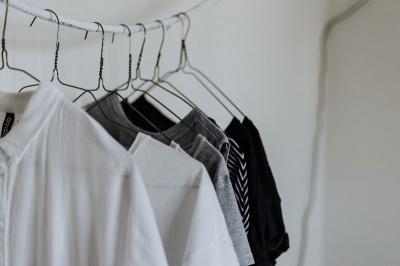
In traditional Chinese culture, black and white clothing are associated with funerals or mourning. So, these colors symbolizing misfortune are not favored and should be avoided to wear during the Lunar New Year festival. Dress in red (the luckiest color in Chinese culture) or another bright color.
The Chinese New Year taboos mentioned above are widely observed throughout the entire Lunar New Year celebration. Keep reading to learn about more Chinese New Year taboos day by day from the Chinese New Year's Eve.
10. Don't Eat All of the Fish
Fish is a must-have dish at the Chinese New Year's Eve dinner. It's a homophone for the word "surplus" or "abundance." The tradition is not to eat the entire dish. You can leave the head or tail on the plate. Enjoying a fish dish today and having leftovers symbolize abundance year after year.
Further Reading
11. Don't Clean the House
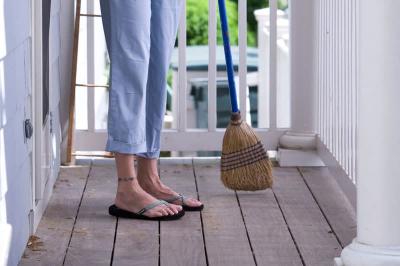
As a tradition, Chinese people choose a specific day to do house cleaning before the Chinese New Year. The act of sweeping symbolizes the cleaning away of any bad luck from the past year and embracing new energy in the new year.
However, cleaning, sweeping, or taking out the trash on the first day of the New Year is forbidden. It is believed that cleaning on this day will sweep away good fortune. Make sure you throw out the garbage BEFORE the stroke of midnight on Chinese New Year’s Eve.
Similarly, you shouldn’t do laundry, wash your hair, or take a shower on Chinese New Year’s Day. Otherwise, you will wash away all your good luck.
12. Don't Give New Year Greetings to Someone still in Bed
According to Chinese New Year superstitions, giving New Year blessings to a person who is still in bed is like cursing them spend the entire year in bed, ill.
Further Reading
13. Don't Wake Up Those Who Are Asleep
Let people sleep. Another ancient Chinese myth is that the person who is wakened up on the first day of the Lunar New Year will have to work non-stop.
14. Don't Eat Congee
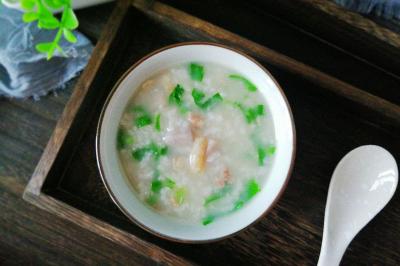
Congee ("zhou" in Mandarin and "jook" in Cantonese) is a classic comfort food in Chinese cuisine. You can eat congee (also known as Chinese rice porridge) at any meal, but it is definitely not eaten at the start of the Lunar New Year.
In ancient times, many poor people could only afford congee due to a shortage of rice. So, eating congee on the first day of the new year is considered a bad omen, as it is believed to signal a poor life.
Further Reading
15. Don't Nap
Generally, taking a midday nap can enhance memory and mental alertness, as well as reduce fatigue and stress. However, taking an afternoon nap on New Year's Day is not recommended. There is the belief that napping on this day symbolizes laziness for the upcoming year.
16. Don't Use Sharp Object
Another Chinese New Year taboo is to avoid using pointy and sharp objects such as scissors, knives, and needles on the first day of Chinese New Year. Sharp objects are seen as terrible omen for quarrel and injury. Keep them out of sight.
17. Avoid Unlucky Numbers in the Red Envelope
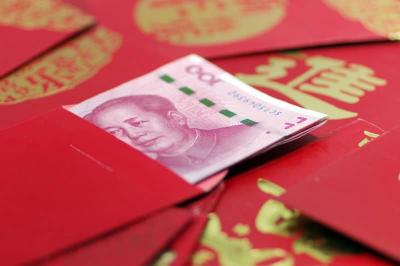
In China, it's a tradition to give Chinese New Year red envelope (红包, hongbao) to children, family members, or friends as a wish for good luck for the new year ahead. The rule is that only lucky numbers of notes should be put into a red envelope. Give an even number instead of an odd number. Besides, never include unlucky numbers such as 4, 40, and 400 because the number 4 sounds similar to the word for death. Read more on How to Give a Red Envelope
These taboos and superstitions of Chinese New Year have been followed by Chinese people for centuries, embodying wishes and avoiding bad luck. Some of them may sound strange. Well, even if you don't believe them, it can't hurt to try, right? They may bring a little extra luck to your year ahead.
18. Don't Borrow or Lend Money
Borrowing money at the start of the new year is considered a sign of bad luck, indicating that you may have to borrow throughout the year. Just like borrowing, lending money is thought to lead to inauspicious things like financial loss. It's also advisable to avoid pressuring for debt repayment on this day. If you do this, you are likely to bring bad luck to both parties.
It's believed that settling any outstanding debts before the Lunar New Year break can help avoid money troubles in the new year.